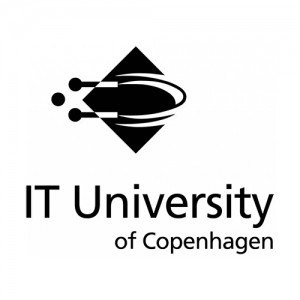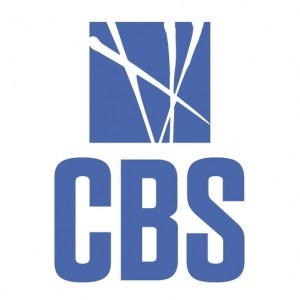Photos of university / #itucph
Digital Innovation and Management at the IT University of Copenhagen is a cutting-edge master's programme designed to equip students with the skills and knowledge necessary to thrive in the rapidly evolving digital landscape. This comprehensive programme combines advanced technical understanding with strategic management competencies, enabling graduates to lead digital transformation initiatives across various industries. Throughout the programme, students engage with a range of subjects including digital business models, innovation processes, data analysis, and emerging technologies such as artificial intelligence, machine learning, and blockchain. The curriculum emphasizes practical application, encouraging students to develop innovative solutions to real-world challenges through project-based learning, internships, and collaboration with industry partners.
Students will gain a solid grounding in the theoretical foundations of digital innovation while also acquiring hands-on experience in designing and implementing digital strategies. The programme prepares graduates for leadership roles in digital transformation, product development, and technology management, equipping them to work effectively in the intersection of business and technology. The international environment, combined with close ties to industry, provides students with valuable networking opportunities and insights into global digital trends. Graduates of the programme are well-positioned for careers in digital consulting, innovation management, entrepreneurial ventures, and executive positions in tech-driven organizations.
The programme typically spans two years, offering a dynamic and stimulating educational experience through lectures, workshops, case studies, and project assignments. Admission is competitive and requires applicants to demonstrate a strong interest in digital innovation, relevant academic background, and motivation for working at the forefront of digital transformation. Upon completion, students receive a master’s degree from the IT University of Copenhagen, recognized for its focus on innovative, interdisciplinary education that prepares graduates to shape the future of digital society.
The Master of Science in Digital Innovation and Management at IT University of Copenhagen is a cutting-edge program designed to equip students with the knowledge and skills necessary to lead digital transformation in various organizational contexts. This interdisciplinary program focuses on developing a deep understanding of digital technologies, innovation management, and strategic leadership, enabling graduates to effectively design, implement, and manage digital solutions that drive business growth and societal impact. Throughout the program, students engage with a wide range of topics including digital business models, data analytics, information systems development, user-centered design, and entrepreneurial innovation. Emphasizing hands-on learning, the curriculum combines theoretical foundations with practical projects, case studies, and collaboration with industry partners, ensuring students are well-prepared to tackle real-world challenges in digital innovation. The program also highlights the importance of understanding organizational change, digital governance, and ethical considerations in technology deployment. Students will develop competencies in managing cross-disciplinary teams, fostering innovation cultures, and using agile methodologies for project management. Furthermore, the program encourages an entrepreneurial mindset, inspiring students to create and scale new digital ventures. Graduates will be equipped to pursue leadership roles in various sectors, including IT, finance, healthcare, and public administration, where digital transformation plays a critical role. The international environment and collaborative learning approach prepare students to work effectively in global and diverse teams. Upon completion, students emerge as strategic thinkers and innovative problem-solvers, ready to lead digital initiatives and contribute to sustainable development in their organizations and communities.
Program requirements for the Digital Innovation and Management MSc at the IT University of Copenhagen include a Bachelor's degree or equivalent with a minimum of 180 ECTS credits, demonstrating proficiency in relevant fields such as information technology, management, or related disciplines. Applicants are expected to have a solid foundation in programming, systems analysis, and business administration. Prior experience with digital transformation, innovation processes, or project management is advantageous. The program typically requires proof of English language proficiency through standardized tests like TOEFL or IELTS, unless the applicant has completed their undergraduate studies in English. A strong motivation letter detailing the applicant's interest in digital innovation, as well as relevant work or project experience, can strengthen the application. It is also necessary to submit academic transcripts, CV, and references if requested. The program emphasizes interdisciplinary skills, combining technical understanding with strategic management, so candidates should demonstrate analytical and problem-solving abilities. As this is a selective master's program, meeting the formal requirements does not guarantee admission, which also depends on the overall assessment of the applicant's suitability, motivation, and potential contributions to the program. In summary, candidates should have a relevant undergraduate background, demonstrate language proficiency, and exhibit a clear interest in digital innovation and management to be considered for admission.
Financing for the Digital Innovation and Management Master's degree programme at the IT University of Copenhagen is structured to support students through various funding opportunities, scholarships, and financial aid options. The programme's tuition fees are applicable to international students from outside the European Union/European Economic Area, while students from within the EU/EEA and certain other categories may be eligible for fee waivers or reduced fees. Tuition fees are announced annually and are designed to be competitive within the Nordic higher education landscape.
Students are encouraged to explore scholarships offered by the university, which occasionally include merit-based awards for outstanding academic performance, as well as targeted scholarships for students from specific regions or backgrounds. In addition, Danish government and EU funding options may be available for eligible students, such as the European Funding Programs or national grants for students pursuing master’s degrees in Denmark.
International students may also consider financial planning solutions such as student loans, sponsorships, or external funding from home countries. The university provides comprehensive guidance on applying for loans and scholarships, including deadlines, eligibility criteria, and application procedures. It is recommended for prospective students to review the specific financial requirements well in advance of admission.
Furthermore, students are advised to ensure personal financial planning for living expenses, accommodation, insurance, and study materials, as these constitute significant components of overall costs. The university offers some support services to help students manage their finances, including orientation programs that include sessions on budgeting and finance management for international students.
Overall, while the university aims to make higher education accessible through various financial support options, students should actively seek funding opportunities and plan their finances carefully to ensure a smooth academic journey in the Digital Innovation and Management programme.
The Master’s Programme in Digital Innovation and Management at the IT University of Copenhagen is designed to equip students with the skills and knowledge necessary to navigate and lead in the rapidly evolving digital landscape. The program focuses on the intersection of technology, business, and society, preparing graduates to develop innovative digital solutions and manage digital transformation processes within organizations.
Students in this program gain a comprehensive understanding of digital innovation methodologies, including design thinking, agile development, and user-centered design. The curriculum emphasizes the importance of strategic management in a digital context, covering topics such as digital business models, innovation management, and enterprise architecture. Additionally, students learn about data analysis, cybersecurity, and the ethical implications of digital technologies, ensuring they are prepared to handle the complexities of digital transformation responsibly.
The program combines theoretical perspectives with practical applications, often involving project-based coursework that requires collaboration with real-world organizations. This hands-on approach allows students to apply their knowledge directly to current digital challenges faced by businesses and institutions. Furthermore, the program fosters entrepreneurial thinking and innovation, encouraging students to develop new digital products, services, and business models that can disrupt traditional industries.
Internationally oriented, the Master’s in Digital Innovation and Management attracts students from around the world, providing a multicultural environment that fosters diverse perspectives and collaborative problem-solving. The program also offers opportunities for internships and industry collaborations, which are crucial for gaining insights into the digital economy and establishing professional networks.
Graduates of the program are equipped to assume roles such as digital project managers, innovation consultants, digital strategists, or entrepreneurs focused on digital ventures. They are prepared to work across sectors including IT, finance, healthcare, public administration, and commerce, where digital transformation is a priority.
The IT University of Copenhagen emphasizes research-based teaching, ensuring that learning is aligned with the latest developments in digital innovation. The university’s strong ties to industry partners and active involvement in research projects provide students with access to cutting-edge knowledge and practice. The program is typically structured to be completed over two years of full-time study, culminating in a master’s thesis that involves independent research or an applied project addressing a pressing digital challenge.
Overall, the Master’s Programme in Digital Innovation and Management aims to cultivate innovative, strategic, and technically skilled professionals capable of leading digital initiatives and fostering growth in a digital economy. The program’s multidisciplinary approach ensures graduates have a holistic view of digital transformation’s opportunities and challenges, positioning them for successful careers in an increasingly digitalized world.





